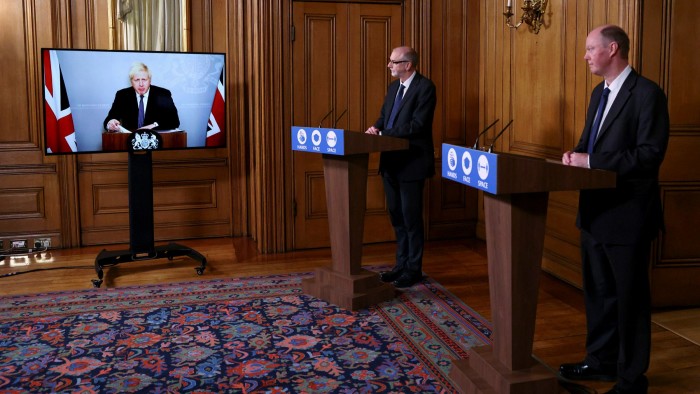Diversity is critical for effective crisis leadership


Roula Khalaf, Editor of the FT, selects her favourite stories in this weekly newsletter.
Amanda Goodall is a reader in leadership at City’s Business School, University of London.
In his bestselling book on the Spanish Flu, The Great Influenza, John Barry implores governments in future pandemics to retain the public’s trust: “The way to do that is to distort nothing, to put the best face on nothing, to try to manipulate no one.”
There are few times in history when leadership is so important as in a pandemic. With more than 30 years of political experience, German chancellor Angela Merkel has shown herself to be the expert crisis manager in the Covid-19 emergency, as she did in the 2008 financial crisis. As a leader she is credible, she shows humility, listens to expert advice and makes data-driven decisions.
In fact throughout the pandemic, countries led by women have experienced fewer coronavirus cases and fewer deaths. By contrast, nations with populist and economically rightwing leaders were slow to react and implemented fewer health measures.
How should the UK assess the performance of its prime minister and his top team? Has Boris Johnson demonstrated personal accountability, has his behaviour been consistent and has the standard sought from us been maintained by them? Arguably not.
Decision-making has gyrated from one direction to another: as in the latest lockdown announcement giving businesses less than 12 hours to stop trading — and during their lucrative Christmas period.
Part of the problem is that the prime minister’s cabinet may be the least experienced ever. Dissenting voices from the Tory ranks, representing decades of political and policy experience, were shown the door. This encourages damaging groupthink. In addition to having a lack of diversity of outlook and opinion, the top team are reasonably homogenous. It is predominantly male, privately schooled and mainly educated in the humanities.
The UK government relies heavily on its Scientific Advisory Group for Emergencies — or Sage — which also lacks a diverse range of disciplines. Lord Gus O’Donnell, former cabinet secretary to three prime ministers and head of the civil service, has pointed out that Sage is too heavily drawn from the medical sciences, and fails to take account of views from other parts of the scientific community, particularly the social sciences.
Indeed, economics, the field most likely to be called upon to deal with the £400bn of public borrowing to mitigate the effects of the pandemic, has been almost entirely excluded from Sage discussions. Yet the pandemic is arguably the biggest problem in health economics since the war.
This dearth of scientific diversity has created a fundamental problem: deviation seems not to be tolerated, which has led to an emotional war between the unquestioning advocates of lockdown policies and those from disciplines who are calling for the inclusion of other ideas — in particular, much needed analyses of the costs and benefits of current policies.
Mirko Draca, director of the Centre for Competitive Advantage in the Global Economy at Warwick university, believes that the Sage approach is not how the input of scientific advice should function. He suggests that the defensiveness demonstrated by Sage members may be an outcome of the desire for professional status and concerns about job-promotion prospects.
He also says that another incentive has emerged in the form of a “new economy of micro-celebrity”. As a result, open minds have been replaced by entrenched positions.
All this is against the spirit of scientific discussion. Moreover, it means that the policymakers have not been exposed, or at most only very briefly exposed, to other kinds of scientific opinion. The ferociousness, and sometimes personal unpleasantness, that has been reported in newspapers is another sign of the absence of balanced scientific debate. The Great Barrington Declaration, in particular, led to personal abuse by some scientists about the motives of others, which is a further sign that something has gone very wrong.
Lord O’Donnell explains that it is the job of academics to argue and debate, test and reject ideas. But, he argues, it is the role of government to assess, in as broad a way as possible, how the science should be used in its policies. The idea that government merely “follows the science”, as is so often claimed, is a dereliction of duty. Governments should be informed by science, not led by it.
Would this kind of leadership be tolerated in a high-performing company? No. Shareholders would insist on an experienced executive being in place. The board of directors, chosen because they have different expertise, would monitor CEO behaviour. The board would think about the long-term (not merely the next election) and would discourage negative emotional responses and infighting among their senior advisers.
Twitter: @AmandaGoodall1
Andrew Hill is away
Comments